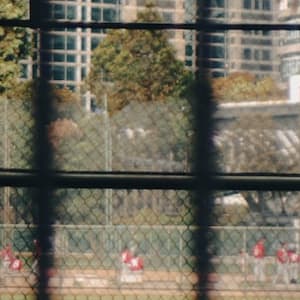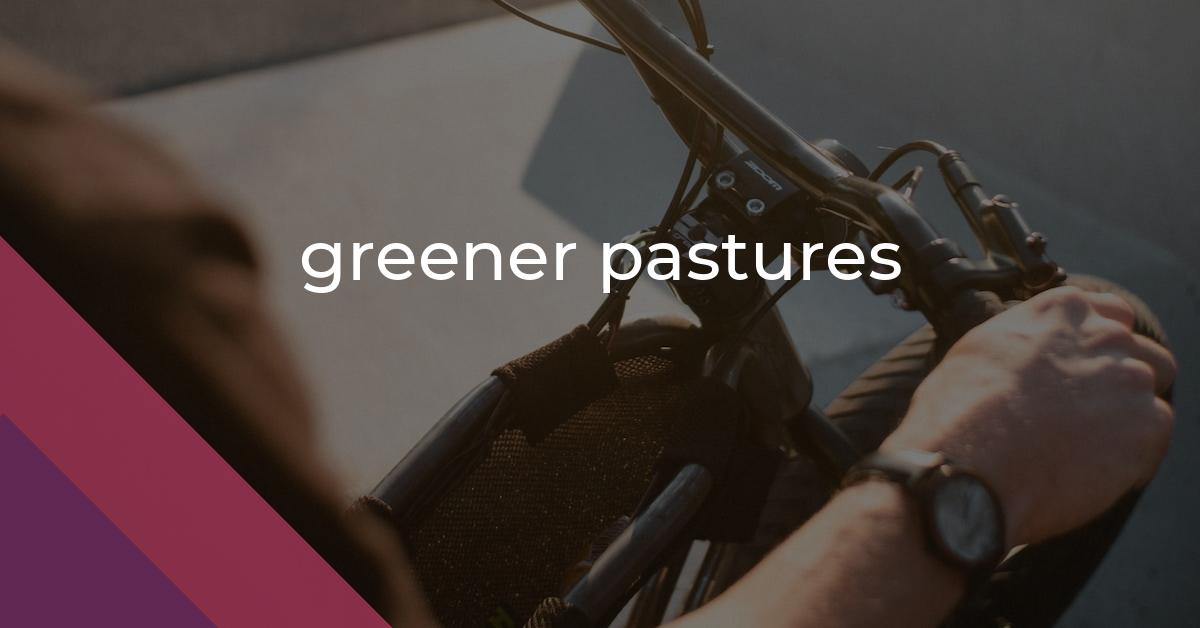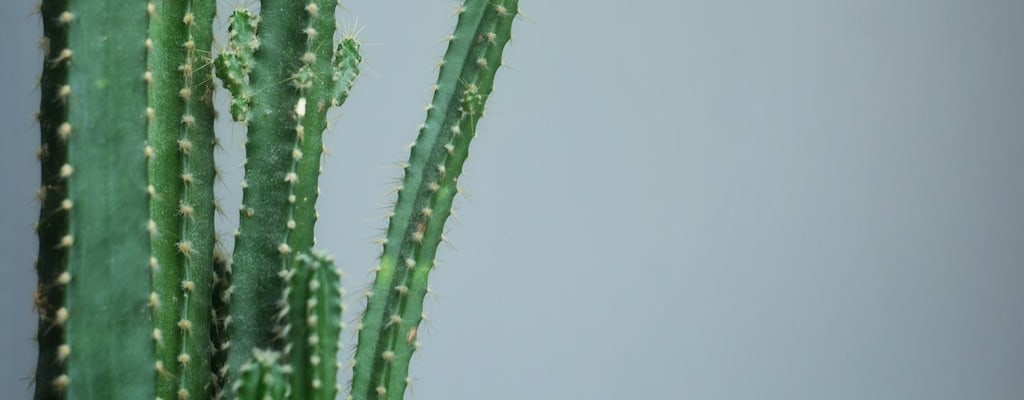greener pastures: Idiom Meaning and Origin
What does ‘greener pastures’ mean?
The idiom "greener pastures" means to seek better opportunities or conditions elsewhere, often in terms of employment or living situation.

Idiom Explorer
The idiom "leave home" means to go away from one's house or childhood home, usually to live independently or start a new chapter in one's life.
The idiom "land of opportunity" refers to a place or situation where there are many opportunities for success, especially in terms of economic and social advancement.
The idiom "in the green tree … in the dry" means being in a favorable or advantageous situation versus being in a difficult situation or unfavorable conditions.
The idiom "green with envy" is used to describe someone who is extremely jealous or envious of someone else's success or possessions.
The idiom "go the way of" means to follow the same path or fate as something or someone, usually implying that the outcome will not be favorable or will result in obsolescence or extinction.
The idiom "go their separate ways" means to separate or part ways, typically after a period of being together or working together.
The idiom "go out" means to leave one's home or current location for social or recreational purposes.
Mystical Realms Explored
Greener pastures is an idiom commonly used in the English language. It refers to the pursuit of a better or more favorable situation, whether in terms of one's career, personal life, or general circumstances. The term implies a desire for something perceived as more advantageous or desirable than one's current situation.
The origin of this idiom can be traced back to agriculture and livestock farming. In this context, "pastures" refer to areas of land used for grazing animals. The idiom draws upon the idea that animals prefer lush, green pastures over dry, barren ones. This association of verdant, healthy grass with better conditions has been metaphorically transferred into the realm of human desires, aspirations, and choices.
The expression "greener pastures" gained popularity and became an established idiom in the English language in the early 20th century. It is often employed when someone is considering changing jobs, relocating to a different city, or pursuing new ventures.
This idiom suggests that there are other opportunities or situations that may offer improvements or advantages over one's current circumstances. It implies a sense of dissatisfaction or restlessness with the present and a desire to explore new possibilities. The phrase appeals to the innate human desire for progress, growth, and the pursuit of happiness.
However, it is important to note that the idiom may also carry a subtext of risk and uncertainty. While the grass may appear greener on the other side, there is no guarantee that the desired situation will be achieved or that it will be truly superior to the current one. The idiom acknowledges the inherent gamble involved in seeking new opportunities and making important life choices.
One related idiom is "better place." This phrase is often used to describe a situation or location that is considered more favorable or advantageous than the current one. It shares a similar sentiment with "greener pastures" as both idioms convey the desire for improvement and a longing for something better.
Another related idiom is "in the green tree … in the dry." This phrase suggests that it is better to be in a good or favorable situation ("in the green tree") compared to a difficult or challenging one ("in the dry"). This sentiment aligns with the idea of seeking greener pastures, as both idioms emphasize the pursuit of more advantageous circumstances.
The phrase "change of scenery" is also related to the concept of greener pastures. It refers to the act of changing one's environment or surroundings in search of something new or different. This could involve seeking new opportunities, exploring unfamiliar territories, or simply finding a fresh perspective. "Change of scenery" captures the essence of the desire for greener pastures, as it implies a need for a new experience or setting.
Similarly, the idiom "land of opportunity" is connected to the idea of greener pastures. It is used to describe a place or situation where there are plentiful opportunities for success, growth, and advancement. This phrase encompasses the notion of seeking greener pastures, as it signifies the search for a location or circumstance that offers better prospects and possibilities.
Lastly, the idiom "go places" is another expression related to the concept of greener pastures. It refers to achieving success, making progress, or experiencing personal growth. When someone is described as someone who "goes places," it means they are ambitious, motivated, and likely to achieve great things. This idiom aligns with the underlying desire for improvement and the pursuit of a more favorable situation associated with greener pastures.
The idiom "greener pastures" conveys the desire for a better or more favorable situation, drawing upon the metaphorical association of lush, green pastures with better conditions and opportunities. It reflects the universal human longing for improvement and the pursuit of happiness. Several related idioms, such as "better place," "in the green tree … in the dry," "change of scenery," "land of opportunity," and "go places," further emphasize the longing for a more advantageous circumstance and the innate human desire for progress and success. However, these idiomatics phrases also acknowledge the risks and uncertainties involved in seeking change and venturing into the unknown. Ultimately, the idiom "greener pastures" encapsulates the never-ending human quest for improvement and the endless possibilities that lie beyond the horizon.
Example usage
Examples of how the idiom "greener pastures" can be used in a sentence:
- After working in the same company for five years, Sarah decided to leave for greener pastures.
- John quit his job to pursue greener pastures in a bigger city.
- Many people dream of moving to another country to find greener pastures.
More "Employment" idioms



